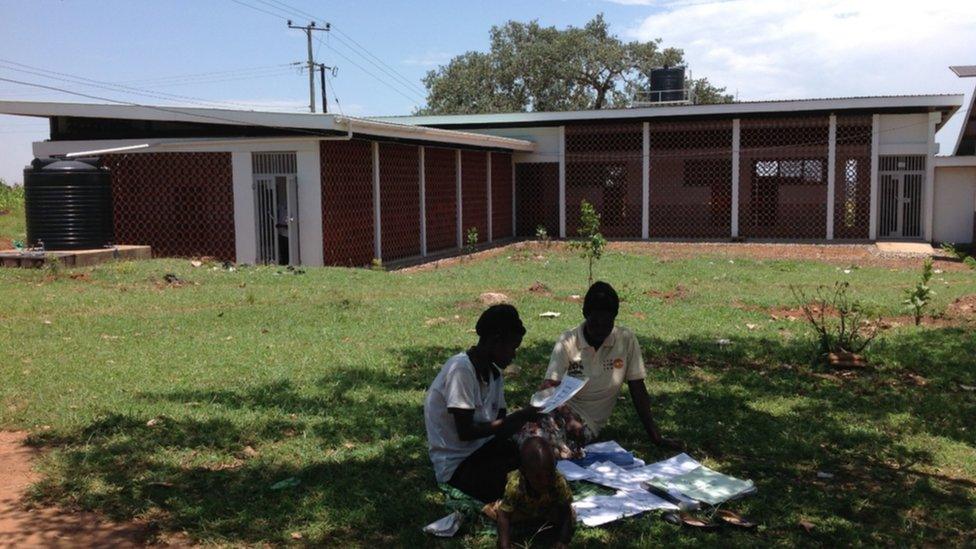Birth device made in Gwynedd 'may save thousands of lives' in Uganda
- Published
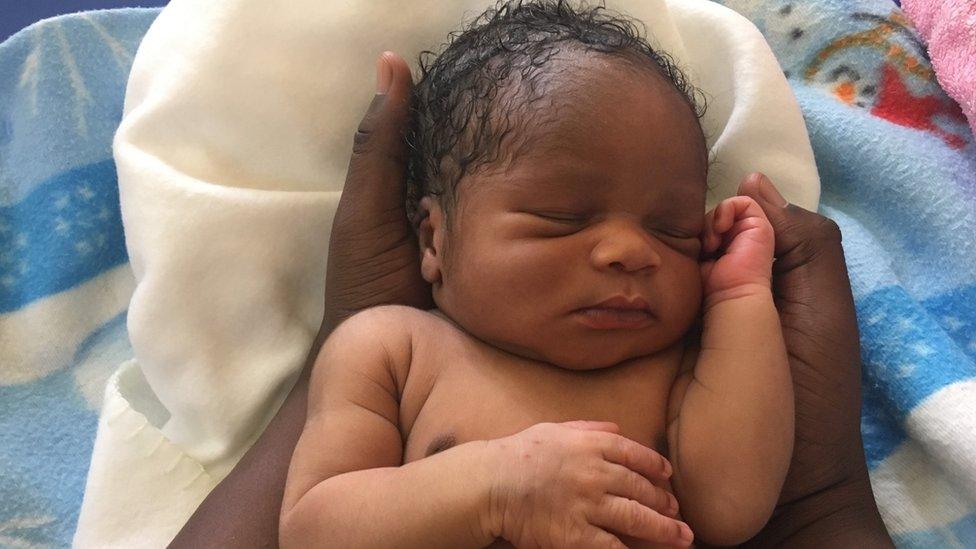
Babies that need to be resuscitated are being saved by the device
Hundreds of thousands of babies' lives could be saved each year in developing countries thanks to a device made in Gwynedd.
The BabySaver, developed by Professor Andrew Weeks, is able to resuscitate babies at birth without having to separate them from their mothers.
The prototypes have been made by a team at Bryn Y Neuadd Hospital in Gwynedd.
"We believe it will be a game-changer for families in Uganda, and hopefully further afield," Mr Weeks said.
The device contains equipment like a suction device and stethoscope, which can be placed between a mother's legs enabling the umbilical cord to remain intact while doctors treat her baby.
Many hospitals across the UK use a similar device, also developed by Mr Weeks, called the LifeStart trolley, but they can cost more than £10,000 and require electricity.
In comparison, the BabySaver costs £40 to produce and does not need electricity to work.
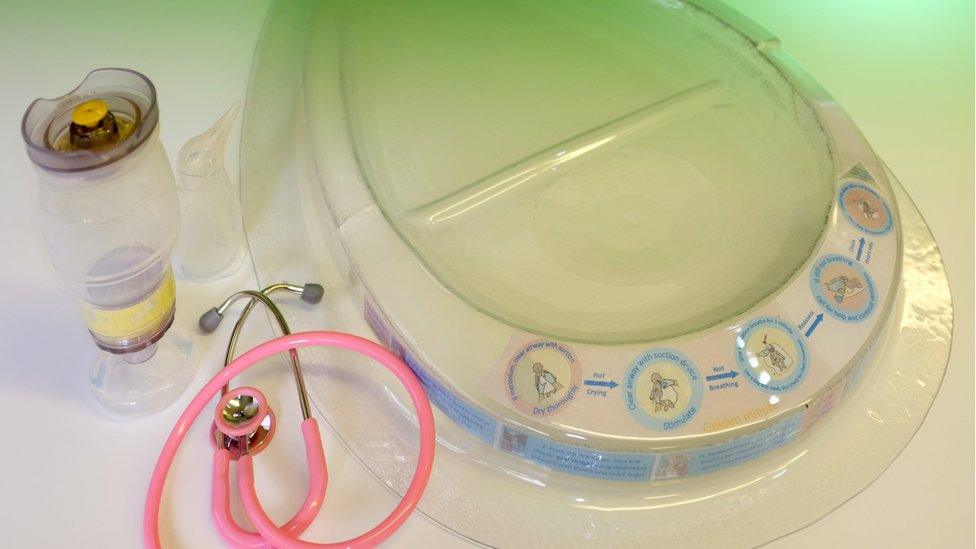
The device contains equipment like a suction device and stethoscope
Mr Weeks, who works at Liverpool Women's NHS Foundation Trust and the University of Liverpool, made the device with the help of the rehabilitation engineering team at Bryn Y Neuadd Hospital.
"Each year approximately six million babies across the world require basic neonatal resuscitation and around 900,000 of these will die," he said.
"The vast majority of deaths occur in low-income settings where there are few facilities for newborn resuscitation at birth.
"Where resuscitation does occur, it often happens away from the mother - or even in another room, which can be very distressing for the mother and baby.
"The BabySaver enables resuscitation to take place at the bedside, with the umbilical cord still attached.
"Allowing the cord to stay intact has huge health benefits for newborn babies but it also allows the midwife to stay with the mother at a high risk time for her."
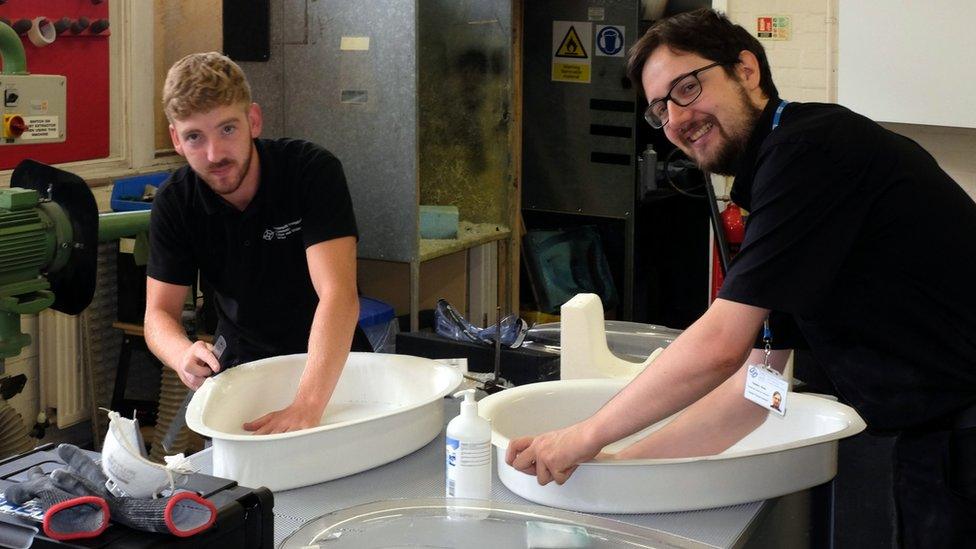
The team at Bryn Y Neuadd Hospital in Gwynedd worked on a prototype device
The prototype was officially launched in Uganda last month, with the full backing of the Uganda's Ministry of Health.
Testing of the product will now take place to refine it further.
- Published11 March 2018
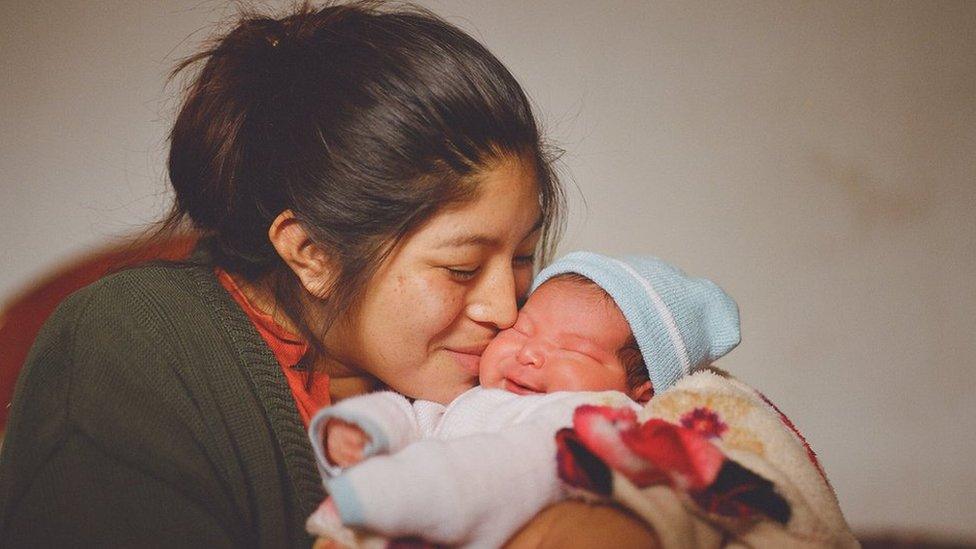
- Published19 June 2018
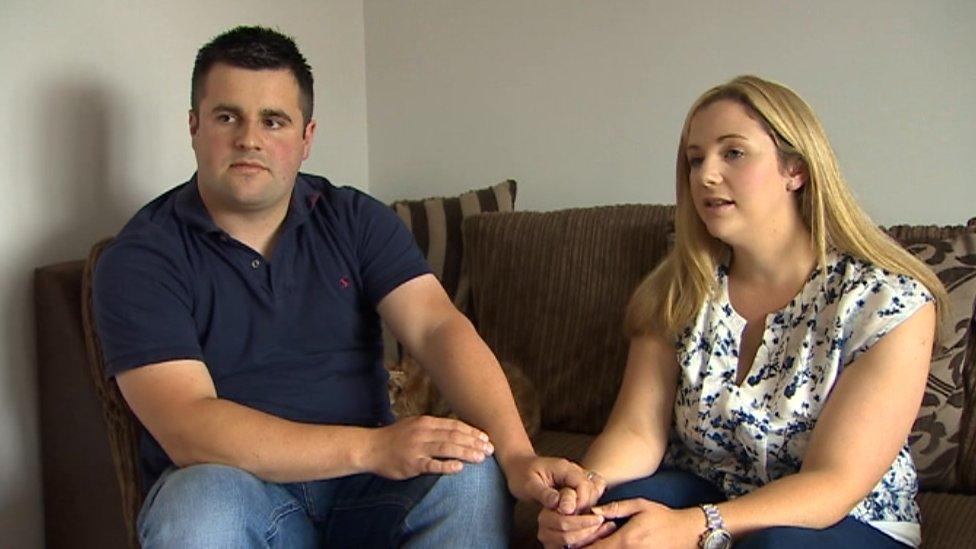
- Published29 October 2017
